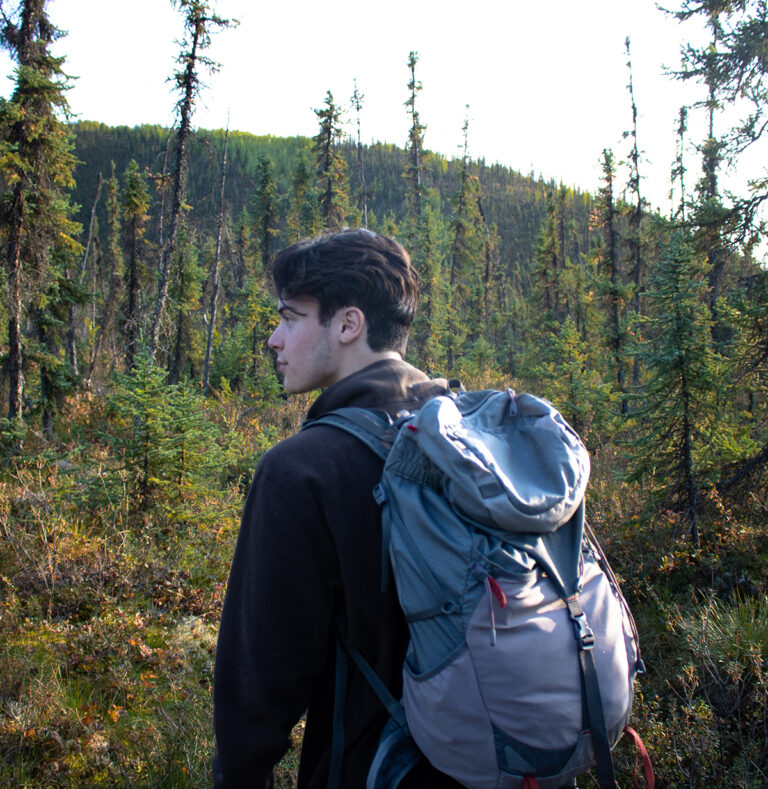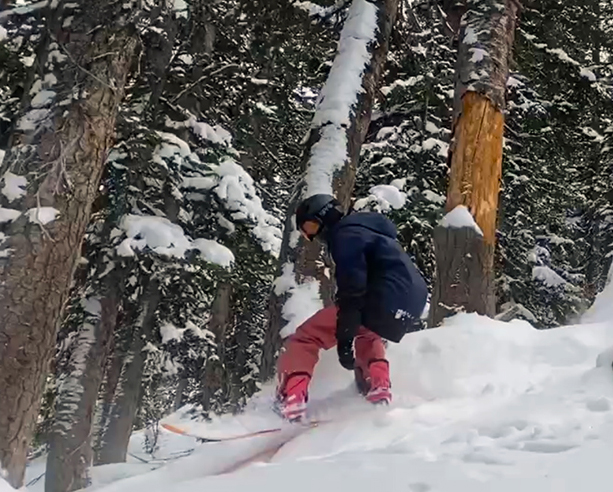Alumni Spotlight: Ludovico Verniani ’21 Rewards Adventure With Quadra App

Do you love traveling and exploring new places? Do you love immersing yourself in nature by mountaineering and surfing? Ludovico Verniani does too, so much so that he created an app called Quadra to reward and encourage exploration.
Verniani graduated from UCI’s Donald Bren School of Information and Computer Sciences (ICS) in 2021 with a B.S. in computer science, and he’s been furthering his passion for programming and technology in recent months by building Quadra. Quadra is a newly launched decentralized app that employs blockchain technology, including web3 and non-fungible tokens (NFTs), to get people out and about.
In the Quadra app, areas of land on Earth are unlocked during mystery drops. Each piece of land exists in Quadra as a 500 by 500-meter square called a QUAD. Users can claim a QUAD once they have traveled to that location. Through the unique NFT feature of Quadra, they can also customize and trade their QUAD squares.
“Similar to the way in which Pokémon Go merged the real and digital worlds together, Quadra pushes people to seek out new and remote places around the physical world in exchange for digital blocks of land that can be collected, customized and sold,” says Verniani. “Users compete to be the first to reach extreme locations, and the value of each token is tied to the energy, resources and risks taken to physically travel to the location of each corresponding token.”
Inspiring Adventure
Verniani’s inspiration behind Quadra comes from his upbringing in a mountaineering family. He says one of the best parts about the brutal yet rewarding hike to get to the top of a mountain is getting to read a summit register. Summit books are found at the summit of a mountain, stored in a weatherproof box. Those who reach the summit can write something in the register for future hikers to read and remember.

“When it was my turn to add to the book, I always enjoyed the idea of telling a compelling story for someone 100 years from now to read and feel inspired by,” says Verniani. “Quadra follows a similar principle: once you have claimed land, you can leave anything behind.”
Measuring someone’s adventurousness is another reason why Verniani wanted to build Quadra. He says social media apps such as Instagram can give you an idea of how much traveling a person has done, but social media doesn’t always paint the full picture or determine someone’s “adventurousness’ score,” which is what Quadra can do.
Though he first thought of the idea for Quadra during his freshman year of college, it wasn’t until January of this year that Verniani started to develop it. Verniani spent the first few weeks conducting research to see how viable Quadra would be. Once he had a blueprint for how he wanted the app to function, he started building it.
“A major hurdle for me was learning about blockchain development, custom smart contracts, ethereum protocols and implementing them in a mobile context,” says Verniani. “A huge competitive advantage we have is that Quadra is the first and only app on the iOS app store right now that can transact NFTs.”
Something that Verniani has learned from his experience with developing several apps is that engineers, including himself, can be hyper-fixated on the technology being used to create programs and put user experience on the back burner. Verniani took a different approach when building Quadra and let the “vision [he’s] trying to actualize inform tech choices” in order to make an exciting and engaging app that will eventually expand to include virtual reality.
“Quadra is a long-term project I really believe in. In this increasingly digital age where exploration of beautiful places is often experienced vicariously through social media … I hope to inspire people to explore the beauty of Earth around them for themselves,” says Verniani. “My ultimate goal is to commodify adventure.”
A Passion for Software
Verniani has a number of commitments on his plate beyond growing Quadra. He’s currently obtaining his master’s degree in computer science with a specialization in machine learning at the University of California, Los Angeles. Verniani also plans to continue innovating in web3 and blockchain technology, which are areas he finds interesting because they revolve around data insulation.
He adds that his passion for software wasn’t something he had when he first entered college. Verniani was initially an undeclared major at UCI until he took a computer science course over the summer at the University of California, Berkeley.
“I remember the first python program I built like it was yesterday because it actually improved my life and convinced me to major in computer science. The program would send me an email every time there were exceptional surf conditions in Newport Beach or San Clemente based on live swell, tide and wind data,” he says.
One of his favorite classes at UCI was Alex Thornton’s course on data structures. “The material was beautifully presented and permanently altered the way I wrote code,” he says.
Verniani’s UCI education goes hand in hand with his desire to solve problems that affect millions of people — something that he says keeps him up at night. He has a number of internships under his belt, including NASA and 23andMe. He’s currently a software engineering intern at Tesla and Uber.
“Interning at Tesla has been awesome, especially seeing what the autopilot team is accomplishing. As a tree-hugger, I enjoyed being surrounded by bright minds that are dedicated to keeping the planet alive and healthy,” says Verniani. “I suggest interning at Tesla if you have a strong work ethic and believe in renewable energy.”

In true fashion with his tree-hugger and mountaineering roots, Verniani is an adventurer at heart and enjoys being outdoors when he needs a little break.
“I love exploring and relaxing in nature. This means taking off work in the middle of the week to chase down snow storms to ski and lathering up in kilos of sunscreen on the weekends to surf with dolphins,” he says.
To learn more about Quadra, connect with Verniani on LinkedIn or visit the Quadra website.
— Karen Phan